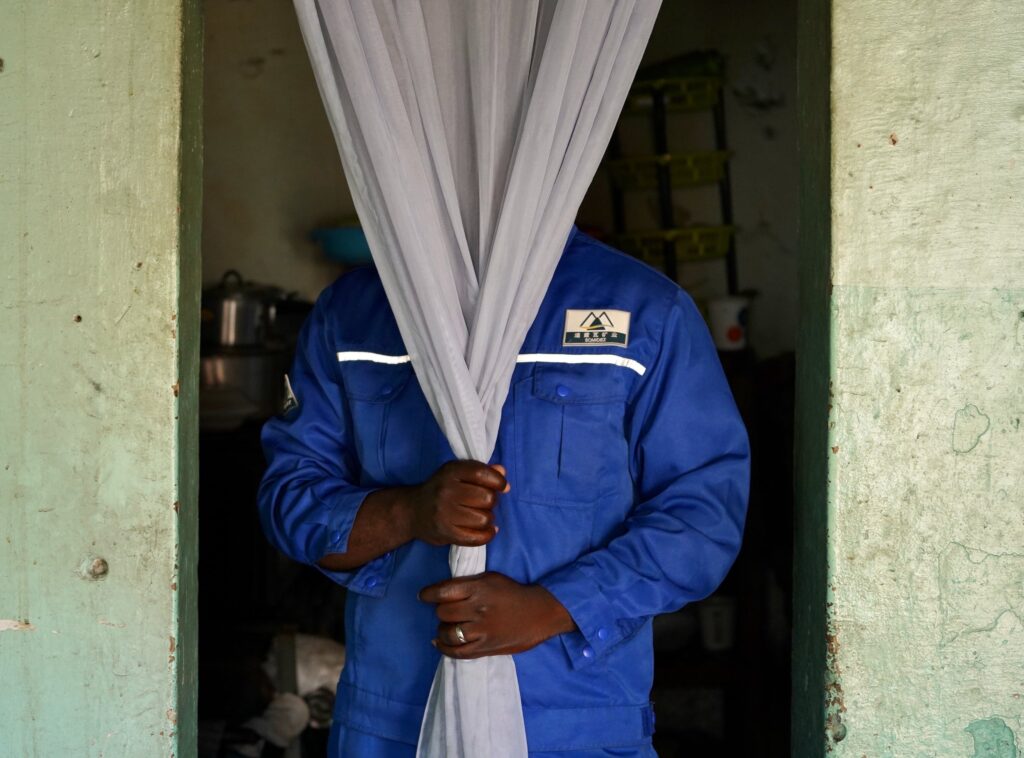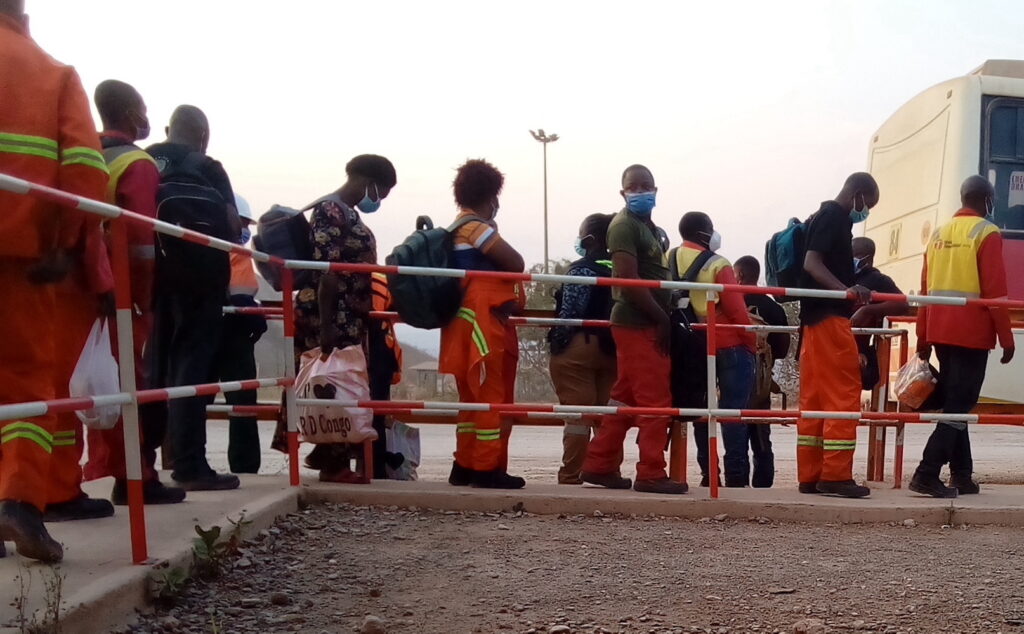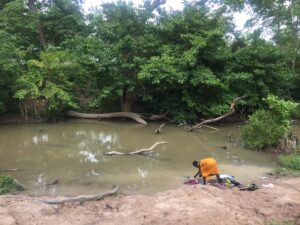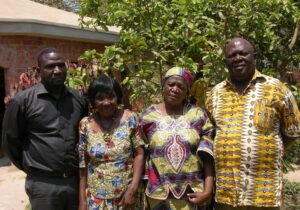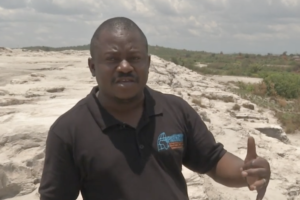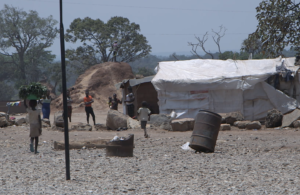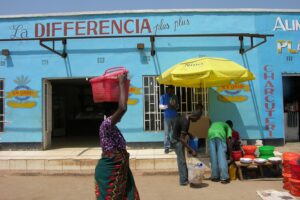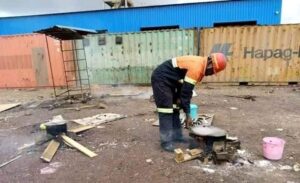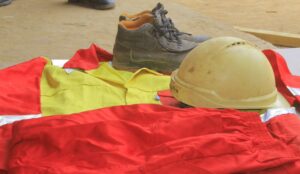Pour la version francais, cliquez ici. Le rapport francais ici.
New research released today reveals dire conditions, discrimination and extremely low pay at some of the world’s largest industrial cobalt mines operated by multinational mining companies in the Democratic Republic of Congo. Cobalt is considered an essential mineral in the lithium-ion batteries that power electric vehicles (EV). Over 70% of the world’s cobalt is extracted in Congo.
Demand for cobalt is set to explode in the next 30 years, as net-zero global emissions by 2050 are expected to be agreed at the COP26 climate conference in Glasgow. The acceleration of EV production is crucial for the transition to a low-carbon economy, yet it appears to be linked to serious labour rights abuses, as revealed by the new research at five industrial mines in Congo where cobalt is produced: Kamoto Copper Company (KCC), Metalkol RTR, Tenke Fungurume Mining (TFM), Sino-Congolaise des Mines (Sicomines) and Société Minière de Deziwa (Somidez).
The 87-page report “The Road to Ruin? Electric vehicles and workers’ rights abuses at Congo’s industrial cobalt mines” exposes a system of widespread exploitation. Congolese workers interviewed for the research said they received very low pay and were subjected to excessive working hours, degrading treatment, violence, discrimination, racism, unsafe working conditions, and a disregard for even basic health provision.
Some workers described being kicked, slapped, beaten with sticks, insulted, shouted at, or pulled around by their ears. Others reported severe discrimination and abuse at Chinese-operated mines. One worker said, “Our situation is worse than before. The Chinese come and impose their standards and culture. They don’t treat Congolese well. This is new colonisation.”
“The mining industry’s claim that large-scale cobalt mining in Congo is ‘clean’, ‘sustainable’ and ‘free from the human rights abuses’ is simply not matched by the reality,” said Anneke Van Woudenberg, Executive Director at RAID. “Our research reveals that the cobalt destined for the batteries in electric vehicles is largely based on a system of cheap labour and the exploitation of thousands of Congolese workers.”
The labour rights abuses are directly linked to an outsourcing model whereby workers are not hired directly by the mines, but instead are employed indirectly via subcontracting firms. Official figures show at least 57% of the workers employed across the five mines studied in the report are supplied by subcontractors. At some mines the percentage was significantly higher. Those interviewed for the report, including managers at subcontracting firms, said the multinational companiesdo so to reduce labour costs, to limit their legal liabilities and to prevent workers from joining unions.
Workers hired indirectly by the mines earn extremely low wages, often much less than the living wage of $402 per month, the minimum remuneration to afford a decent standard of living. They have limited healthcare benefits, sometimes as low as $10 per month, or none at all, even though Congolese law requires employers to provide free healthcare to workers and their dependents.
Many workers expressed despair that they were unable to pull themselves or their families out of poverty. One worker said, “We were working hard, without any breaks, for $2.5 a day. If you didn’t understand what the boss said to you, he would slap you in the face. If you had an accident, they would just fire you.”
“The boom in electric vehicles sales should be an opportunity to pull Congo’s people out of poverty but the desperate accounts from workers at Congo’s cobalt mines tell a different story,” said Josué Kashal of CAJJ. “The switch to clean energy must be a just transition, not one built on the backs of exploited Congolese workers.”
The findings are based on detailed research over 28 months and 130 interviews by corporate watchdog Rights and Accountability in Development (RAID), and Centre d’Aide Juridico-Judiciaire (CAJJ) a Congolese legal aid centre specialised in labour rights.
Four of the five mines featured in the research said they abide by international and industry standards and pointed to internal human rights standards they had developed. The degree to which these standards applied to a mine’s entire workforce (direct as well as indirect hires) was often unclear.
In their report, RAID and CAJJ trace the cobalt from the five mines through the supply chain to EV manufacturers such as General Motors, Renault Group, Tesla, Toyota, Volkswagen and Volvo, among others. These consumer-facing companies say they seek to source minerals responsibly. Although such commitments are much needed, none of the growing number of industry initiatives aimed at supply chains are binding and many do not cover workers’ exploitation or a broad range of labour rights.
RAID and CAJJ called on all cobalt and copper mining companies operating in Congo to end the extensive use of subcontracting firms for their labour needs, to pay all Congolese workers (direct and indirect hires) the minimum living wage, and to immediately investigate and take action to address allegations of physical violence, racism and discrimination against Congolese workers. They called on car companies to end contracts with cobalt suppliers who failed to take action to remedy worker exploitation.
The organisations also urged for the implementation of robust measures to create incentives for change and accountability along the cobalt supply chain, from governments adopting strong legal frameworks, such as mandatory human rights due diligence laws (requiring companies to address the adverse impacts of their operations on human rights and the environment) as well as stronger industry frameworks which cover workers’ rights.
“The urgency of the climate crisis demands bold action from both industry and governments that sacrifice neither people nor the planet,” Van Woudenberg said.“Producing truly ‘ethical’ batteries free from workers’ exploitation, human rights abuses and environmental harm, which contributes to a just transition and does not repeat the injustice of the fossil fuel based economy, is vital.”
Notes:
The mines and their parent companies covered in the study include the following: (i) Glencore’s Kamoto Copper Company (KCC), (ii) Eurasian Resources Group’s Metalkol RTR, (iii) China Molybdenum’s Tenke Fungurume Mining (TFM), (iv) China Nonferrous Metal Mining Company (CNMC)’s Société minière de Deziwa (Somidez) of which the Congolese state company Gécamines owns 49% and, (v) Sino-congolaise des mines (Sicomines), a joint venture between Gécamines and a consortium of Chinese companies and investors.
RAID and CAJJ calculated that together these mines produced nearly half of the global cobalt supply in 2020.
RAID and CAJJ calculated the living wage in Kolwezi based on the Minimum Expenditure Basket methodology used by UN agencies.
For more information, please see:
The full report “The Road to Ruin? Electric vehicles and workers’ rights abuses at Congo’s industrial cobalt mines” can be found here.
Correspondence between RAID/CAJJ and the mining companies see here; with smelters and refiners see here, and with auto manufacturers, see here. A summary table is available here.

